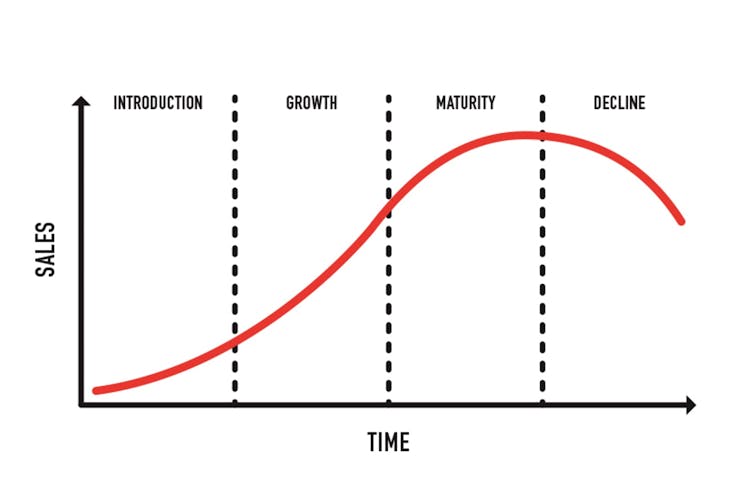Thank you to the Committee for the opportunity to appear today.
This so-called Ensuring Integrity Bill is an attack on the basic rights of all working people in Australia to join, run and be represented by the union of their choice.
An attack on unions is an attack on all working people.
This law will undermine workplace safety, increase wage and superannuation theft and make it harder for workers to get pay increases and be represented when they need help.
This Bill introduces harsher and more rigorous standards than on any other organisation in society, including corporations, charities and incorporated associations.
There is no equivalent to this bill anywhere in the western world. As a democracy develops and as an economy develops, you usually see that freedom of association for workers improves. This bill bucks that trend.
Let’s put this bill in context.
Nearly half of the workers in Australia are in insecure work.
We are currently experiencing the longest period of low wage growth since the end of World War II. In the June quarter of 2019 wages had only grown by 2.3%. Workers share of national income in Australia is at close to a 60-year low.
Half of all new jobs in our economy are second jobs, and people working two jobs in our country earn less than those working one.
And more than a million people working part-time can’t get enough hours.
There is a crisis of wage theft, with high profile cases such as George Colambaris, 7/11 and Caltex just a few of the examples of a practice too wide-spread to properly quantify. And one in three workers – around 2.85 million people – are being ripped off by almost $6 billion in superannuation a year.
Worksites continue to be plagued with health and safety issues. 111 Australian workers have been killed at work in 2019 alone.
And it’s getting harder and harder for workers to bargain collectively to improve on their pay and conditions. Enterprise bargaining is falling, and as at May 2018, only 37.9% of employees are covered by any kind of enterprise agreement.
Workers relying on minimum award coverage has risen from 15.2% in 2010 to 20.9% in 2018. That’s 5.7 percentage points in less than a decade.
Not only is this Government doing nothing substantive to address these issues, by persisting with this short-sighted, ideological, obsessive attack on the union movement they are in fact going to make things worse.
The Committee has already heard expert evidence from economists Dr Quiggan and Dr Stanford that if this bill is passed there will be lower wage growth, more unsafe workplaces and fewer rights for working people.
Meanwhile, there is no Ensuring Integrity Bill for banks. There is no Ensuring Integrity Bill for politicians.
This Bill is so extreme in its overreach and capacity to harm the good work that unions do, so blatantly opportunistic and politically motivated, and so ill-suited to the purpose that it claims to pursue, that it cannot be salvaged. To use an analogy – this requires a demolition job, not a renovation job.
The Bill will make Australia unique in industrialised liberal democracies globally in the draconian measures that it imposes. We are not taken in by the rhetoric-this is neither a measured nor an incremental piece of legislation.
Our submission goes into extensive detail on the ACTU’s concerns about each of the schedules of the Bill, but I want to highlight just a few of these now.
Firstly, the concept of a designated finding or a designated law-which underpins every aspect of the Bill-is far too broadly defined.
A finding against particular officers, a small class of members, or a part of an organisation, can in various ways be counted against the whole of the organisation, such that ‘the many will be punished for the crimes of a few’.
The finding can relate to a minor or technical breach-despite what the Government says, there is no requirement for the finding to relate to a serious offence or contravention.
The breaches themselves already carry with them civil and criminal sanctions to which the harsh consequences introduced by this legislation will be added.
And the finding can provide a ground for one of several orders regardless of the views of members, the best interests of members, or the ability of the officer, organisation or amalgamation under scrutiny to serve those interests.
Secondly, and relatedly, the Bill sets a very low bar to establish a ground for the most extreme sanctions – disqualification or deregistration.
The Government claims that the Bill is intended to deal with unions and union officers who repeatedly break the law. This claim does not match the reality of the Bill.
The grounds for disqualification and deregistration in the Bill do not require repeated unlawful conduct. They are not reserved to be a last resort option.
The grounds either do not require a judicial finding of unlawful conduct at all, or require only one or two such findings.
The bar to establish a ground to trigger the Court’s discretion to impose these very serious sanctions-in addition to the range of civil and criminal sanctions already in place-is set very low.
None of the grounds for disqualification or deregistration require the conduct to be ‘serious’, ‘deliberate’, ‘knowing’, ‘wilful’, ‘repeated’, ‘persistent’ or ‘systematic’.
The Royal Commission recommended against any changes to the existing deregistration provisions, in part because there are already several grounds on which an application can be made under the existing Act, and in part for the obvious reason that “Cancelling the registration of the whole union may have a disproportionate effect on union members who have not been involved in illegal activity”.
Thirdly, the Bill imposes more onerous standards on unions and union officers than are imposed on companies and company directors.
The disqualification regime for union officers in the Registered Organisations Act already extends further than the regime for company directors in the Corporations Act by the inclusion of violence, damage or destruction of property.
Company directors can be disqualified for the narrower criteria of criminal and certain civil contraventions of the Corporations Act.
The Explanatory Memorandum for the Bill relies on a finding of the Royal Commission that an officer of a registered organisation could not be disqualified for a contravention of their statutory duties, but completely fails to mention that the Registered Organisations Act was already amended to address this, back in 2016.
Union officers can already be disqualified for criminal and all civil contraventions of the Registered Organisations Act.
Under the Bill, union officers will now also be disqualified for contraventions of industrial laws and work health and safety laws. The same standard does not apply for company directors who cannot be disqualified even if they endanger workers’ lives, steal workers’ wages, or deliberately obstruct a union officer exercising their right of entry to investigate a safety issue or underpayment.
Unlike this Bills effect on unions no direct mechanism exists for a corporation to be wound up, placed under administration or have a merger refused due to non compliance with law by the company, its directors or its members.
Regarding Schedules 3 and 4 and the proposed changes to administration and amalgamations, there is simply no policy justification for these changes. Not even Commissioner Heydon in the Royal Commission recommended any changes to the existing administration or amalgamation provisions.
The HSU case, which occurred before the Royal Commission, demonstrated the effectiveness of the current administrative regime.
The amendments fundamentally change the nature of the current administration regime, which provides for a remedial scheme to be imposed by the Court for the benefit of members in limited circumstances, to provide for yet further punitive measures to address alleged wrongdoings.
The amendments to the amalgamation process in the Bill as originally introduced in 2017 was self-evidently targeted at the political purpose of preventing the CFMEU, MUA and TCFUA amalgamation and it is shameful that the Government has continued the charade of these amendments have any legitimacy at all by keeping them in the 2019 Bill.
Disturbingly, there is no limit on retrospectivity in the application of the amendments to administration or amalgamations. The Government has offered no justification for this departure from one of the most fundamental principles of good law making.
Make no mistake, the Bill is designed to target ALL unions. Unions are already highly regulated and have to deal with the weight of a significant compliance burden. Highly complex and technical legal rules govern right of entry, bargaining, and industrial action. This Bill make the consequences for a mistake or a minor breach so much greater.
Knowing that the employer can bring one of these applications and use it as leverage if you get it wrong will have a chilling effect and change the power dynamic between workers and employers. This would still be true even if standing was limited to the regulator, because the Bill makes the consequences for getting it wrong so extreme, and because standing to bring proceedings in relation to the types of contraventions that lead to designated findings is not limited to the regulator.
So, an employer can bring an application in relation to unprotected industrial action, for example, and findings in that application can potentially then lead to ground applications for disqualification, deregistration, an alternative order, administration or to block an amalgamation.
Disturbingly, under the Bill, a ground for deregistration, an alternative order, or an administrative scheme will exist where the affairs of the organisation are conducted in a manner that discriminates between a member or members or is contrary to the interests of a part of the membership. The Committee has already heard evidence of the kinds of decisions that unions have to make on a daily basis that balance competing interests between members or classes or members or parts of the union.These include negotiating wage flat as opposed to percentage wage increases which could for example be argued to discriminate in favour of low paid workers.This ground opens all such decisions up to litigation.
The broad grounds, which set such a low bar to bring an application, combined with the broad standing provisions, will see union resources diverted from advancing and protecting their members’ interests to defending litigation.
The Committee has already heard expert evidence on the negative impact this will have on the continuing problems of wage stagnation, wage theft, worker exploitation and unsafe work practices.
The ACTU urges the Senate to reject the Ensuring Integrity Bill in its entirety. We are happy to answer any questions.








